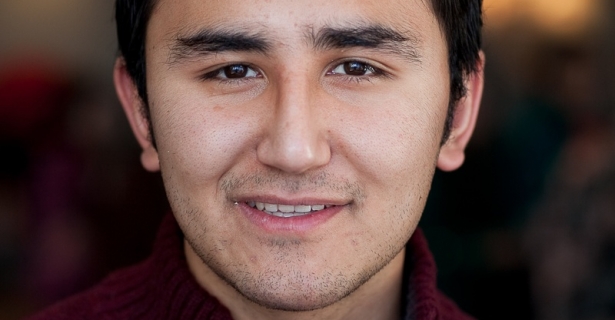In 2010, I co-founded Bridges Academy, a literacy and leadership training program for at-risk youth in a camp for Internally Displaced People (IDP) in Kabul, Afghanistan. Bridges Academy offered a two-year long interdisciplinary program, which focused on integrating the youth in this camp into the larger Kabul community and exposing them to the larger world and opportunities outside their camp. After the completion of the original Bridge Academy program in December 2013, the project expanded to work with juvenile rehabilitation centers (JRCs) around Afghanistan, and since then we have successfully piloted the program in 5 provinces across the country; Kabul, Kandahar, Khost, Parwan, and Kapisa.
This summer, with the support of Tufts Institute for Global Leadership and Tisch College of Active Citizenship, I intend to achieve three things:
1- Implement a short term summer project for at-risk Afghan youth in Kabul;
2- Seek ways to make project more financially sustainable through talking to community
3- Seek ways to increase the effectiveness of the project in the long term.
Short-term summer project:
I am currently in the process of planning a short-term camp for a number of youth from the IDP camp in Kabul. The camp will be held from late July to early August. My team is working on finalizing the list of activities and curriculum for the camp, recruiting mentors and trainers, and planning the logistics (the place the program will be held, the timing, supplies, etc.).
Financial sustainability of the project:
In order to ensure the financial sustainability of the project, I decided to connect with local influencers who were interested in social change, especially in the Afghan government. Several educational institutions and organizations have already shown interest in offering support and resources for the program. Similarly, I have met with Mohammad Yosuf Pashtoon, an advisor to President Ashraf Ghani. Mr. Pashtoon had been the governor of Kandahar and has experience working with people in IDP camps in Afghanistan. He received the project very warmly and suggested that we meet again with him and a few of his friends who were interested about these issues to discuss how we could go forward. He said that working together, they could offer us the financial resources and governmental support while we could work with the implementation of the project. I will also meet with Salih Mohammad Saljuqi, the second vice speaker to the Afghan parliament and with whom I interned last summer, to discuss the project. Collaborating with the Afghan government would offer us financial resources and support that would greatly help the project.
Through my work with people in the Afghan government I have learned that the process is often very time consuming and contingent on the security of the country. For instance, a day before I was supposed to meet Mr. Saljuqi, the June 22 attack on the parliament happened, which resulted in the cancellation of our meeting.
Increasing the effectiveness of the project:
Through my work on the project this summer, I have realize two points that can enhance the effectiveness of this project:
1. I realized that although the work in JRCs would be easier (i.e. fewer security risks and a more secluded environment), it would be more effective to focus on the IDP camp in the long term. Due to government’s negligence, the IDP camps have developed into constant scenes of crime, recruiting grounds for extremists, and hubs for many other illegal activities. Because of this environment in the camp, many of the teens eventually end up at the JRCs. Thus, I have decided to shift the program’s focus to tackling the source of the issue at the IDP camp, rather than working on the result in the provincial JRCs.
2. I realized that especially in working with the IDP youth, a long-term program would be more effective. Although our short-term projects have had great impact on the participants, the environment in which the participants have grown up mitigates the impact after the end of the program. A long-term program, especially in coordination with the Afghan Ministry of Education, will have a greater impact and will allow for the participants to become a part of the Afghan public education system after the completion of our program.


Add new comment